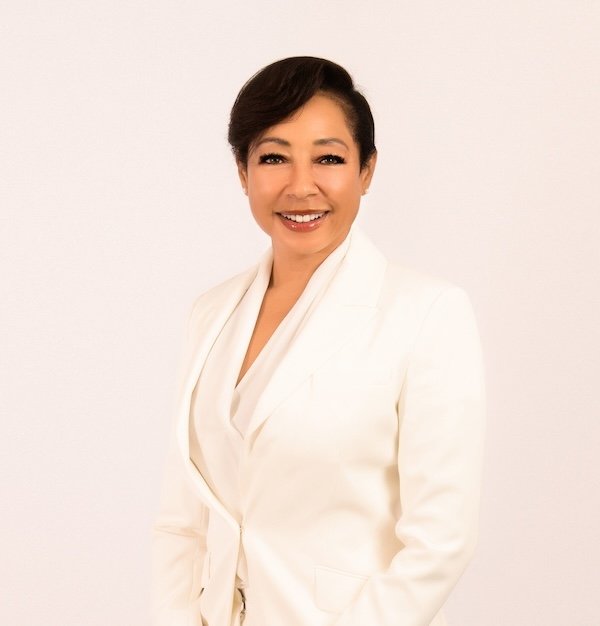Trailblazer Racquel Moses on Climate Change, Gender Equality and the Future of the Caribbean
Photo Courtesy of Racquel Moses
written by Ashley Ramcharan
People travel globally to experience the natural beauty of the Caribbean, yet the stunning region is vulnerable to the lasting global impact of climate change. According to a Yale sustainability study, climate change is an intersectional issue that impacts everyone but causes greater disparity in marginalized communities. As the CEO of Caribbean Climate-Smart Accelerator (CCSA), Racquel Moses has been instrumental in driving projects and collaborations aimed at building resilience and sustainability in her home country of Trinidad and across the region in the face of worsening climate change.
Moses attributes the motivation behind her passion to her role as a mother. Being a mother allows her to view climate change through a nurturing lens.
“When you care for others, you understand the impact of our environmental degradation on each other,” Moses said.
Likewise, those who live in the Caribbean get a close-up and real-life look at ocean pollution and erosion. Due to their proximity to nature and increasingly severe weather, Caribbean people are not just on the front lines but also experience a heightened environmental consciousness.
While Moses has made significant strides in advancing climate-smart initiatives through CCSA, she is also a global ambassador for the United Nations Framework Convention on Climate Change. Her goal is to address community disparities and implement tangible improvements across the Caribbean.
Racquel Moses onstage to moderate the featured panel at the Global Climate Action High-Level Event during the 2023 UN Climate Change Conference, COP28. Photo Courtesy of Racquel Moses
CCSA’s Present Impact on the Caribbean
CCSA aims to transform the Caribbean region into a Climate-Smart Zone, which includes giving precedence to environmental conservation, sustainability and resilience.
“Our coalition of countries already includes countries in Central and South America, who unlike Guyana and Suriname wouldn’t normally be considered a part of the Caribbean, such as Panama and Honduras,” Moses said.
With the addition of the Cayman Islands in January 2024, the CCSA officially has 29 countries and territories as members. The Caribbean faces unique environmental threats. It is vulnerable to extreme weather and rising sea levels. The region is impacted by hurricanes, which have the potential to catastrophically harm an already fragile regional economy.
“The devastation caused by events, such as Hurricane Maria in Dominica or the complete destruction of Barbuda by Hurricane Irma, underscores the urgent need for our region to cultivate social and economic resilience,” Moses said.
A unified effort between governments, private sector entities and civil society organizations across the region is vital for the coalition to prosper. Initiatives centered on community involvement, agroecology, resilient infrastructure and renewable energy are needed. Recognizing this, Moses has assisted in resource mobilization and innovation-driven growth by leveraging collaborations with governments, corporations and international organizations in order to reduce climate risks and advance sustainable development. An example of this is CCSA’s support of a current project in Trinidad and Tobago to manufacture and assemble solar panels for regional distribution.
[Additional Read: Caribbean Art Duo Make Waves at Miami’s Art Basel]
The Future
CCSA plans to expand past its borders onto other continents.
“CCSA is fundamentally Caribbean, but we are also collaborators at heart, we’ve collaborated with organizations as far as Mozambique and we encourage others to learn from our successes while we encourage them to share theirs with us. We will all succeed or fail together,” Moses said.
Moses believes CCSA is not promoting the Caribbean into the First World because governments failed the region.
“We’re in this predicament because [First World countries] got it horribly wrong. Our future was mortgaged to pay for our present. What we’re working towards is a completely new way of being and living, one in which we’re in harmony with nature and are healthier alongside the environment because of it,” Moses said.
Nonetheless, CCSA’s impact is globally recognized. The organization is an official nominator for the Earthshot Prize, a 1-million pound prize initiated by Prince William for initiatives to repair the planet.
Racquel Moses, UNFCCC Global Ambassador CEO of the Caribbean Climate-Smart Accelerator addresses attendees at an MOU signing between Kenesjay Green Limited and ANSA McAL for green energy development in the Caribbean at the CARICOM Pavilion, UN Climate Change Conference COP28. Photo Courtesy of CCSA
By proposing initiatives to address the energy transition, complement existing conservation efforts and generate green jobs, CCSA contributes to preparing the Caribbean for a stronger economic future. The organization aims to introduce new financing streams to improve their capacity to protect themselves, such as financing for loss and damage from natural disasters.
Renewable energy sources like wind, solar, geothermal and hydropower are plentiful. The region has the potential to become energy self-sufficient and even a net exporter of energy if harnessed efficiently.
“Our region may look small on the world map but it accounts for 10% of global coral reefs, 18% of seagrass beds and 12% of mangrove forests as well as a wealth of biodiversity in animal and plant life. We are significant in the global space! If we can protect these natural resources while also profiting from them, there is every reason for our economies to thrive,” Moses said.
CCSA has also created a Climate Smart Map. It’s a tool that gathers data related to climate impacts, climate readiness, climate risk and vulnerability and quantifies it across 28 territories. This information is then used by policymakers, NGOs, investors, project developers, private sector leaders and stakeholders to track environmental progress. Aggregated opportunities may provide more practicality, so this step is crucial as small-scale, highly risky projects inside a single region tend to frighten off some investors.
“The map has the potential to catapult the precision and speed of our decision-making to direct financing and other resources in the right places at the right time for the greatest efficiency,” Moses said.
Addressing Climate Challenges
Moses continues to motivate individuals to join the effort towards a more ecologically sound and prosperous future for the Caribbean and globally. When asked what everyday people can do to help address climate change, she has one important piece of advice.
“Being guardians of our planet is a privilege. What’s beautiful is that indigenous communities have always held this role as sacred,” Moses said.
She shared three tips that global citizens can do to tackle climate challenges:
Everyone has the chance to become engaged in better ways of living, so be curious and willing to learn more.
Consider longer time horizons instead of short-term solutions.
Reserve judgment and lead by example to minimize the gap between ambition and lasting impact.
In recognition of her contributions, Moses has received numerous accolades and honors. She previously served as president of the Investment Promotion Agency of Trinidad & Tobago (InvesTT), solidifying her reputation as a trailblazer and visionary leader. Her work is the testament of a woman determined to tackle the intricate challenges of climate change and create a more safe and sustainable future for the Caribbean and beyond.
To learn more about Racquel Moses, click here.







